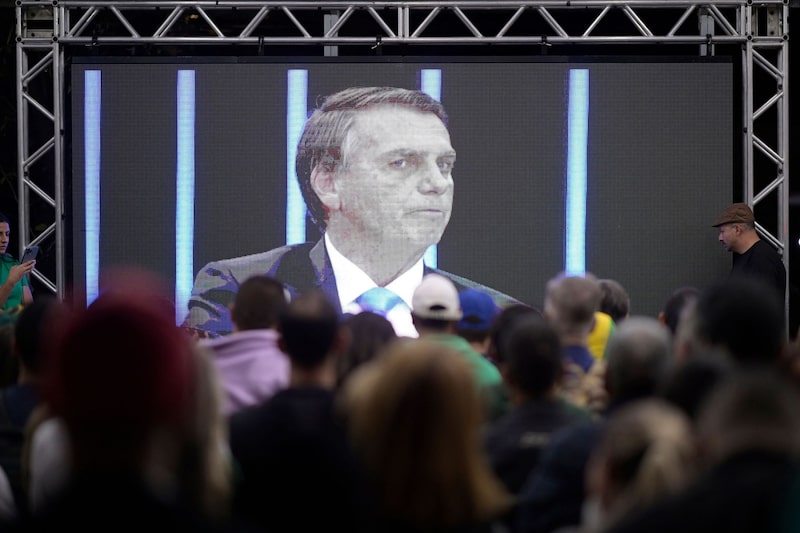Bloomberg — President Jair Bolsonaro pledged to accept the result of Brazil’s October election in a bid to win over moderate voters, even as he continued to raise questions about the integrity of the country’s electronic ballots.
The 40-minute Monday interview with the country’s most-watched television show was wide ranging, with questions about the president’s fraught relationship with the top court, his response to the pandemic, his environmental and economic track record, as well as recent allegations of corruption in his government.
Asked whether he would respect the election’s result, the president repeated unsubstantiated claims of past voter fraud before responding that he will accept the outcome “as long as the vote is clean and transparent.” After the show’s host insisted on the question, he said: “Let’s put an end to this? It’s resolved, let’s move to another question. We’ll respect the result of the vote.”
The right-wing president, trailing leftist leader Luiz Inacio Lula da Silva in major opinion polls, also sought to minimize clashes with Supreme Court justices who authorized investigations into him and his allies for allegedly spreading fake news about the voting system.
“Nowadays that relationship is pacified,” he said. “I hope we have turned that page.”
Read more about Brazil’s elections:
Looking to ramp up his campaign and eat into the front-runner’s lead, Bolsonaro’s decision to sit for a live interview on Globo TV’s Jornal Nacional represents something of a gamble. Since his election in 2018, he’s feuded with the TV channel, the show’s host, William Bonner, along with much of Brazil’s news media, so he could hardly expect a warm reception.
Yet, with six weeks until the election, a strong showing under tough questioning before a national audience may undoubtedly give the incumbent’s campaign a boost.
Unnamed presidential allies cited by Folha de S.Paulo and O Globo newspapers said Bolsonaro managed the face off with the hosts of Jornal Nacional well, without losing his temper -- which they saw as a positive outcome.
A real-time monitoring of social media by Quaest pollster showed, however, that reactions to Bolsonaro’s comments were mostly negative -- 65% of viewers on average disapproved of his answers, particularly when he repeated allegations of voter fraud, or when responding to questions about the pandemic and corruption.
Campaign Strategy
Hours before the interview, Bolsonaro’s team and allies were already working to mobilize supporters on social media, where the president has a much larger audience than his main adversary, urging followers to watch the interview, but switch channels once it is over.
For their part, opponents also took to social media to rally Bolsonaro’s critics to bang pots during the interview to demonstrate their displeasure with the president.
After the interview, Bolsonaro published on social media an excerpt of the interview, during which he says he found Brazil at a “critical situation” in 2019, before contending with the pandemic, a drought, and the war in Ukraine. “We did all that we could for the Brazilian people to suffer as little as possible.”
Three ministers, including Economy Minister Paulo Guedes, and at least one of his sons accompanied the president to Globo TV’s studio in Rio de Janeiro.
The interview also sets the stage for the beginning on Friday of radio and television campaign advertising, a key stage in Brazil’s elections when candidates are given free space in traditional media to present their proposals. Twice daily, Lula will have 3 minutes and 39 seconds of advertising spots, while Bolsonaro will have 2 minutes and 38 seconds. The time allotted each candidate reflects the size of their alliances.
The first televised presidential debate is scheduled for Sunday, but neither Lula nor Bolsonaro have confirmed that they’ll attend.




